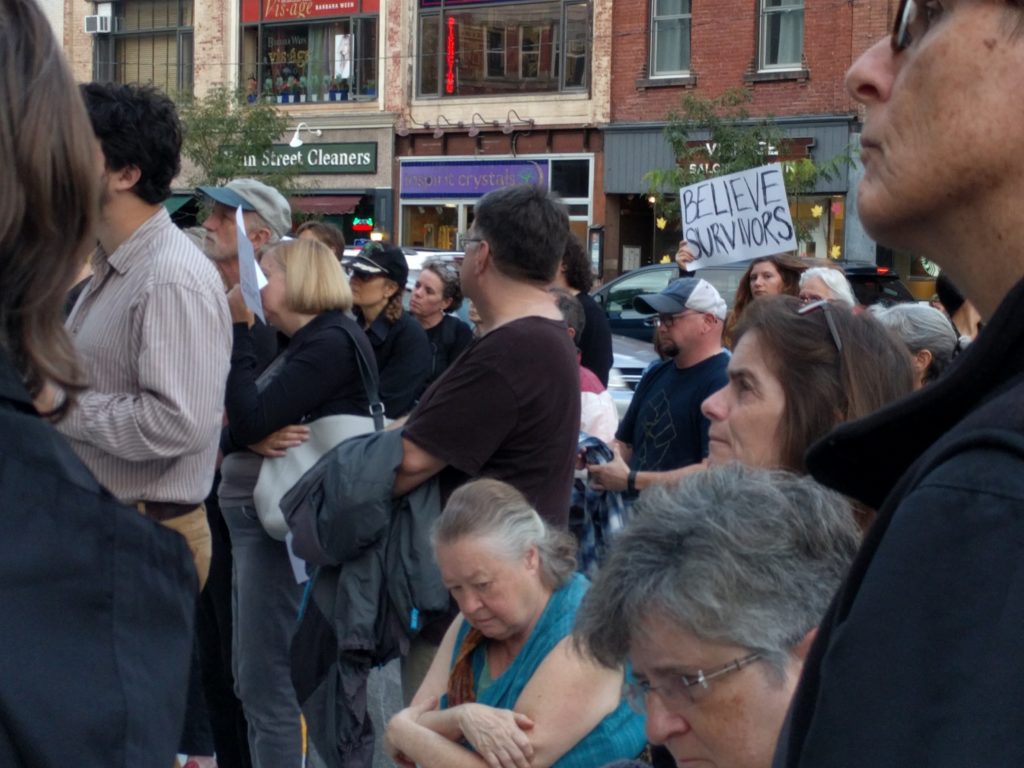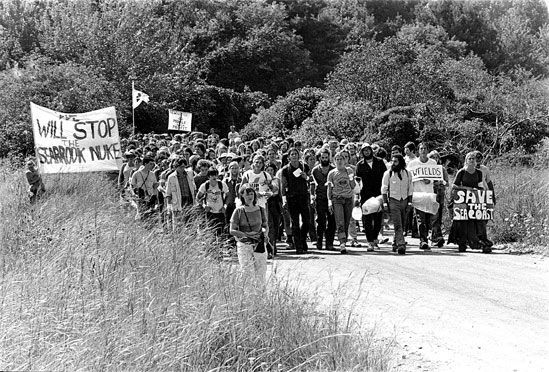Kavanaugh and the Culture of Belonging

This month, in my newsletter, I’ll be reviewing Our Search for Belonging: How Our Need to Connect is Tearing Us Apart, by Howard J. Ross with Jonrobert Tartaglione. Ross, of course, wrote well before Brett Kavanaugh was nominated to the Supreme Court. But as I was reading, the relevance of his work to the Kavanaugh/Ford hearings stood out for me.
I am a survivor of childhood sexual assault. The attack happened when I was 10 or 11, but I didn’t tell anyone until I was 16. That didn’t make it any less real or any less painful. It was the defining trauma of my life.
The Senate hearings brought something home to me:
White, straight men with economic privilege attacked Dr. Ford for speaking out, for not speaking out right away, for not presenting enough evidence (when the Republicans refused her attempts to call witnesses or have an outside investigation). White, straight men with power were in such a great rush to vote in someone who made obvious lies under oath and may well have been a serial sexual assailant that they belittled her and lionized him. Meanwhile, white, straight men without economic privilege made death threats against her and forced her from her home. White, straight men defended the high school and college rape culture even while accepting Kavanaugh’s unconvincing explanation that he was far too pure to have participated in that oppressive culture–despite considerable evidence to the contrary on his own calendars and yearbook.
In Ross’s paradigm, those white straight men have set up an us versus them situation. They’ve turned Dr. Ford–and by extension, any survivor of sexual assault, including me–into “other”–something to marginalize, ignore, and/or discredit (my choice not to say “someone” is deliberate, because dehumanizing is a lot of what happens in these “other” situations). While both the Left and the Right engage in this kind of behavior, from my point of view, the Right uses the tactic both more viciously and more consistently).
Watching the highlight video clips, I found Ford quite credible. Watching Kavanaugh attack her, I perceived a sense of entitlement, attempts to dehumanize, and even the tired old tactic of calling the whole thing out as a partisan attack–not to mention that his testimony was crammed with false statements. It sickened me, just as watching Clarence Thomas use similar tactics to deflect similar accusations against him sickened me in 1991. To the Kavanuaghs and Thomases of the world, as a survivor of sexual assault, I will always be an outsider, even though I am male.
In Ross’s view, one key piece of identity politics is the difference in perception between members of the dominant and non-dominant groups: members of dominant groups typically don’t often think about the experience of those in non-dominant groups. Yet, a person of color or a woman or someone who identifies as another type of minority experiences daily reminders that society puts up physical, psychological, economic, and other barriers.
The Kavanaugh/Ford hearings illustrate that difference in perception really well.
I think many of us perceive ourselves or are perceived by others as outsiders in various ways. I have certainly experienced that as a Jew, as a northeastern progressive, as an activist, as someone involved in various liberation struggles. Yet, to a person of color or a Muslim, I would be perceived as part of the in-group that excludes them. That these categorizations are fluid was brought home to me when I ran for City Council in my town, in 1985. I knocked on the door of a man who said, “You’re Jewish, I’m Polish. We’re both Eastern European. We have to stick together against the Irish and Italians who run this town.” I had seen the Polish population as very much a part of the majority culture in this area, and I, as a Jew, was an outsider; he saw it differently, and that opened my eyes.
In the Kavanaugh case, the ignoring strategy no longer worked, so he moved to attempts to discredit, presenting a wide range of emotional behaviors in the process.
And interestingly, according to one very knowledgeable analyst, Diane Curtis, this fits a typical pattern of the sexual abuser quite closely:
Back when I was representing domestic violence survivors in their family law cases, I witnessed a very high proportion of the abusive men on the other side cry in court. For a long time, I thought it was intentionally manipulative, but after a while I came to see it as genuine decompensation as they confronted for perhaps the first time their inability to control the realities they had constructed. For once, someone else — their victims, the court — was writing the script, and they simply couldn’t handle it. The mirror held up to their behavior undid them, at least temporarily; even more so, the loss of control over their little worlds.
If I had had any doubts previously about the truth of the allegations against Kavanaugh, they disappeared when I heard him sniffling his way through the small part of the hearings I listened to yesterday. The angry outbursts I read about later further sealed the deal. I found myself not just certain the assaultive behavior had occurred, but concerned about his wife and daughters — a man who would come that undone during high profile hearings is almost certainly still engaging in those behaviors, in my experience, and I’d wager he’s still a problem drinker as well.
The old white guys in the Senate, and the one in the White House, are similarly breaking down. They are grasping desperately at their control of the world, the reality they have lived for decades, and they are angrily and sometimes tearfully acting out as it is slowly but certainly removed from their collective grip.
The fall of white male supremacy really is happening right now, in painful slow motion, and it is deadly for sure: survivors of domestic violence are at the most risk when they finally decide to leave.
Now more than ever, we need to support one another, we need to make collective safety plans, and we need to keep working to leave white male supremacy behind.
Your thoughts?

